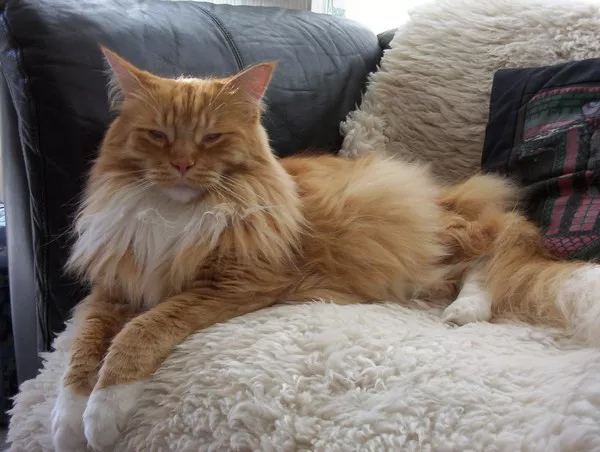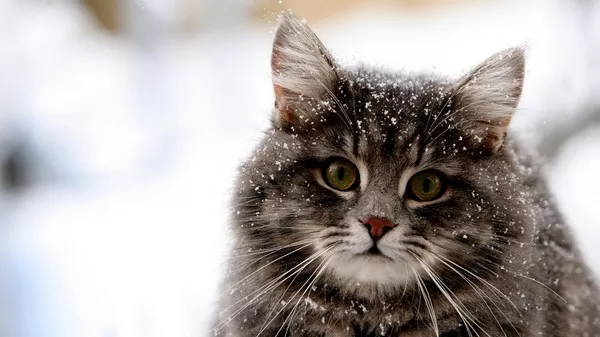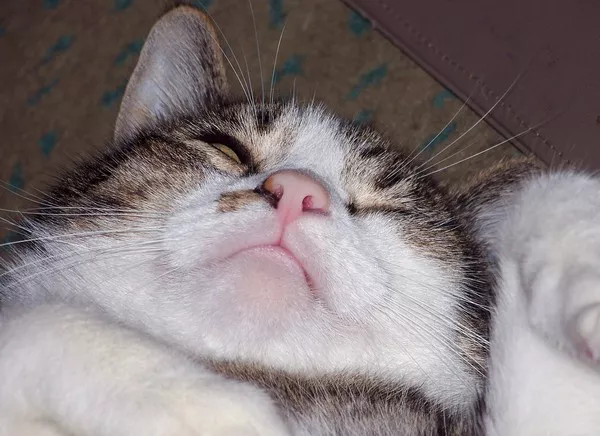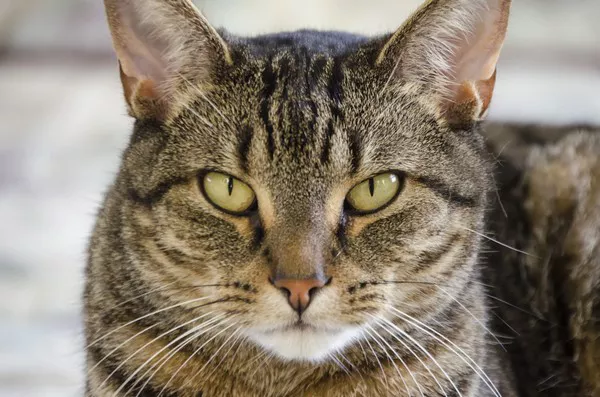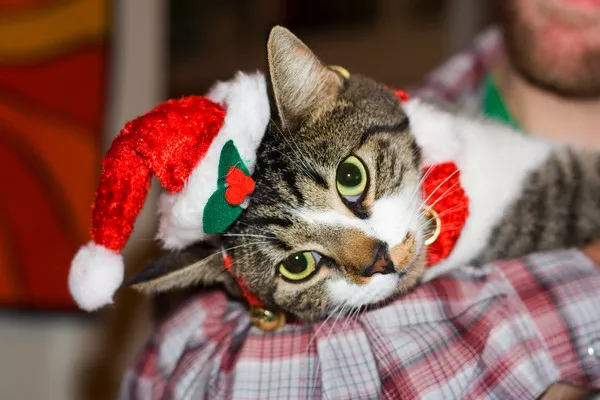Persian cats are known for their stunning appearance, with long, luxurious fur and a characteristic flat-faced, or brachycephalic, structure. These affectionate and gentle cats require specific care, not just in terms of grooming but also regarding their diet. Proper cat feeding plays a vital role in their health, ensuring they maintain an ideal weight, vibrant coat, and overall well-being.
Due to their breed-specific characteristics, Persian cats have unique dietary needs that differ from those of other cat breeds. Understanding these dietary requirements is crucial for providing them with the best nutrition. In this article, we will explore the types of food that are ideal for Persian cats, including dry and wet food options, the nutritional needs they have, and special feeding considerations tailored to their physical and health attributes.
Types of Food for Persian Cats
Persian cats, like all felines, are obligate carnivores, meaning their diet should primarily consist of animal-based proteins. When selecting food for your Persian cat, it’s essential to ensure a balance of high-quality protein, fats, and other nutrients that support their health. There are two primary types of cat food: dry food and wet food. Each has its advantages, and a combination of both is often ideal for ensuring your Persian cat’s dietary needs are met.
Dry Food
Dry food, also known as kibble, is a convenient and widely used food option for cats. It has several benefits, particularly for Persian cats, who require dental care as part of their overall health.
One of the key benefits of dry food is its positive impact on dental health. The texture of kibble helps scrape plaque and tartar from the teeth as the cat chews. Regular chewing can reduce the buildup of harmful bacteria, which may lead to dental disease. For Persian cats, who are prone to developing dental issues, dry food can be an important part of their diet to maintain healthy teeth and gums.
Recommended High-Quality Dry Food Brands for Persian Cats
When selecting dry food for Persian cats, it’s important to choose high-quality options that are specifically formulated for their dietary needs. Look for brands that list high-quality animal protein as the first ingredient, and avoid foods with excessive fillers such as corn or soy. Here are a few excellent dry food options for Persian cats:
Hill’s Science Diet Adult Indoor Cat Food: Known for its high-quality protein and dental health support, this formula is designed to meet the unique needs of indoor cats, like the Persian breed.
Royal Canin Persian Dry Cat Food: This breed-specific formula is designed to support the skin, coat, and digestive health of Persian cats while providing a balanced and palatable diet.
Orijen Original Dry Cat Food: This premium brand uses fresh, whole animal ingredients and focuses on a biologically appropriate diet for cats, offering high-quality protein and low-carb content.
Wet Food
Wet food is another essential part of a balanced diet for Persian cats, offering hydration and a range of nutrients that contribute to their overall health.
Persian cats, like all felines, have a low thirst drive and tend to get much of their water intake from the food they eat. Wet food contains a high percentage of moisture, which helps to keep your cat hydrated. This is particularly important for Persian cats, who may be more prone to urinary tract problems due to their dense fur and sedentary lifestyle. Providing wet food regularly can help ensure your cat gets enough hydration, reducing the risk of dehydration-related health issues, such as kidney problems and urinary tract infections (UTIs).
Recommended Premium Wet Food Options for Persian Cats
When selecting wet food for your Persian cat, look for options that are high in protein and contain essential nutrients to support their health. Avoid wet foods with by-products or fillers. Some excellent choices for Persian cats include:
Hill’s Science Diet Adult Urinary & Hairball Control: This formula is designed to support urinary health and hairball control, both important for Persian cats. It also contains high-quality protein and essential fatty acids to support coat health.
Royal Canin Persian Wet Food: Tailored specifically for the Persian breed, this wet food formula supports the unique needs of Persian cats, such as maintaining a healthy coat and promoting digestion.
Wellness CORE Grain-Free Wet Cat Food: High in animal protein and free from grains, this food supports muscle mass, hydration, and overall wellness for Persian cats.
Balanced Diet for Persian Cats
While both dry and wet food can be beneficial, it is important to provide a balanced diet that includes both. A mixed feeding approach, where dry food is complemented with wet food, is ideal for meeting your Persian cat’s nutritional needs. This combination ensures that your cat receives proper hydration from the wet food while also benefiting from the dental health advantages of dry kibble.
Nutritional Requirements for Persian Cats
Persian cats have specific nutritional needs to support their health and ensure they remain active and vibrant. Their diet should include high-quality protein, healthy fats, vitamins, minerals, and amino acids such as taurine, which is essential for heart and eye health.
Protein
High-quality protein is the most important component of a Persian cat’s diet. Protein provides the building blocks needed for muscle maintenance, growth, and repair. It also plays a crucial role in supporting a shiny, healthy coat. For Persian cats, it’s important to choose food with high animal protein content, such as chicken, turkey, or fish.
Fats
Healthy fats are essential for providing energy and maintaining a glossy, soft coat. Persian cats are particularly prone to skin issues due to their long fur, so it is important that their diet contains omega-3 and omega-6 fatty acids, which help to keep the skin and coat in optimal condition. These fats also support brain and cognitive function.
Vitamins and Minerals
Vitamins and minerals are vital for your Persian cat’s immune system, bone health, and overall well-being. A balanced diet should include adequate amounts of vitamins A, E, and D, as well as minerals like calcium, phosphorus, and magnesium. These nutrients help maintain a strong immune system and contribute to healthy cell function.
Taurine
Taurine is an essential amino acid that cats cannot produce on their own and must get through their diet. It plays a critical role in maintaining the health of the heart and eyes. A taurine deficiency can lead to serious health issues, including heart disease and vision problems. High-quality cat food will always include taurine as a key ingredient.
Feeding Guidelines for Persian Cats
To ensure your Persian cat stays healthy, it’s essential to follow the correct feeding guidelines. These guidelines will help maintain a proper weight and prevent obesity, which is common in Persian cats due to their sedentary nature.
Portion Sizes
The amount of food your Persian cat needs will depend on their age, weight, and activity level. On average, an adult Persian cat may require 1/2 to 1 cup of dry food per day, along with one or two cans of wet food, depending on the calorie content of the food. Always follow the serving recommendations on the food packaging and adjust based on your cat’s individual needs.
Feeding Schedule
Persian cats benefit from a consistent feeding schedule. It is recommended to feed your cat two to three meals per day. Dividing their daily portion into smaller meals throughout the day helps to prevent overeating and supports digestion. You can also leave dry food out for free feeding, especially if your cat has a consistent appetite.
Special Considerations for Persian Cats
Persian cats require special consideration due to their physical characteristics and health needs. Their brachycephalic face shape, long coats, and potential for digestive issues mean that careful thought must go into their diet.
Facial Structure
Due to their flat faces, Persian cats often have difficulty eating certain types of dry food, particularly if the kibble is too large or hard. To accommodate this, look for dry food that is formulated with smaller kibble sizes or softer textures that are easier for them to eat. Some brands also offer kibble designed for brachycephalic breeds.
Hairball Prevention
Persian cats’ long fur can lead to frequent hairballs, which can cause digestive problems or even blockages. Feeding food that contains fiber and hairball control ingredients, such as specialized cat food formulas or hairball supplements, can help manage this issue. Regular grooming also reduces the amount of fur your Persian cat ingests.
Hydration
Since Persian cats are prone to urinary tract problems, maintaining adequate hydration is crucial. Encourage your Persian cat to drink more water by offering wet food regularly. You can also try providing a pet water fountain, as many cats prefer running water, which can help promote hydration.
Health Monitoring for Persian Cats
Monitoring your Persian cat’s health is essential for identifying any dietary issues early. Keep an eye on their weight, coat condition, and digestive health. Any noticeable changes in appetite, coat appearance, or litter box habits may indicate that their diet needs adjustment.
It is also important to schedule regular veterinary check-ups to monitor your Persian cat’s health and adjust their diet as needed. Your veterinarian can help ensure your cat is getting the right nutrients for their specific needs, whether they are a kitten, adult, or senior cat.
Conclusion
Providing the right food for your Persian cat is essential to their long-term health and well-being. A balanced diet that includes both high-quality dry food and wet food is ideal for meeting their nutritional requirements. Remember that Persian cats require special consideration due to their facial structure, long fur, and potential health issues, such as hairballs and urinary tract problems. By understanding the nutritional needs of Persian cats and offering a variety of high-quality food options, you can ensure they lead a happy, healthy life. Always keep an eye on their health and consult with your veterinarian to make adjustments to their diet when necessary.
Related Topics



